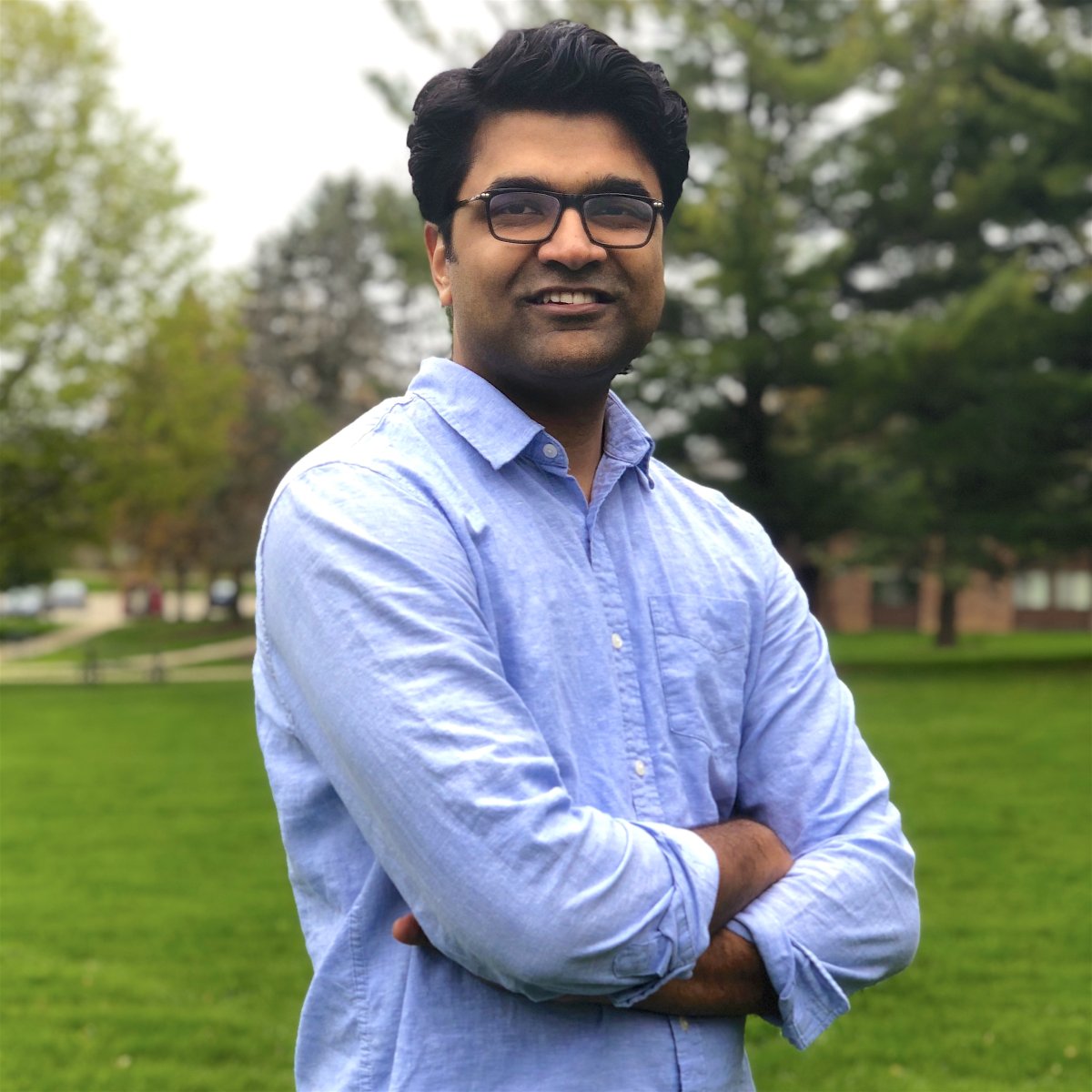MnRI Colloquium: Karthik Desingh
Karthik Desingh is an Assistant Professor in the Department of Computer Science and Engineering at the University of Minnesota. Karthik is associated with the Minnesota Robotics Institute (MnRI). He recently completed his Postdoctoral position at the University of Washington (UW). Before joining UW, he received his Ph.D. in Computer Science and Engineering from the University of Michigan. During his Ph.D., he was closely associated with the Robotics Institute and Michigan AI. He researches the intersection of robotics, computer vision, and machine learning, primarily focusing on providing perceptual capabilities to robots using deep learning and probabilistic techniques to perform manipulation tasks in unstructured environments. His work has been awarded the best workshop paper award at RSS 2019 and nominated as a finalist for the best systems paper award at CoRL 2021. He is serving as an Associate Editor for IROS 2022.
Title: Explicit and Implicit Object Representations for Robust and Generalized Perception in Robotics
Abstract: My long-term goal is to build general-purpose robots that can care for and assist the aging and disabled population by autonomously performing various real-world tasks. To robustly execute various tasks, a general-purpose robot should be capable of seamlessly perceiving and manipulating various objects in our environment. To achieve a given task, a robot should continually perceive the state of its environment, reason with the task at hand, and plan and execute appropriate actions. In this pipeline, perception is largely unsolved and one of the more challenging problems. Common indoor environments typically pose two main problems: 1) inherent occlusions leading to unreliable observations of objects and 2) the presence and involvement of a wide range of objects with varying physical and visual attributes (i.e., rigid, articulated, deformable, granular, transparent, etc.). Thus, we need algorithms that can accommodate perceptual uncertainty in the state estimation and generalize to a wide range of objects.
In my research, I develop 1) probabilistic inference methods to estimate the world-state with the notion of uncertainty and 2) data-driven methods to learn object representations that can generalize the state estimation to a wide range of objects. This talk will highlight some of my research efforts in these two research thrusts. In the first part of the talk, I will briefly describe an efficient belief propagation algorithm - Pull Message Passing for Nonparametric Belief Propagation (PMPNBP) - for estimating the state of articulated objects using a factored approach. Here, objects are modeled explicitly with representations that aid in robust state estimation in cluttered settings. In the second part of the talk, I will describe - Spatial Object-centric Representation Network (SORNet) - for learning object-centric representation grounded for sequential manipulation tasks. Here, objects are modeled implicitly as learned embeddings to aid generalization in perception. I will also discuss the open research problems on these thrusts toward realizing general-purpose domestic robots.
